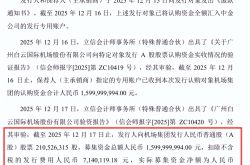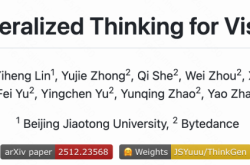Foreign capital is fleeing en masse. How bad has India's business environment become?
![]() 07/17 2024
07/17 2024
![]() 674
674

Make money in India and spend it there, don't take a cent home.
Produced by | Zhuyi Finance
Header Image | Gold Ten Data
When it comes to India, different people have different labels. Some see India as a paradise that defies logic, while others believe it to be a cradle of tech company CEOs.
But for foreign-invested enterprises, India carries a different label—unscrupulous plundering.
In May 2007, Vodafone spent US$11.2 billion to acquire a 67% stake in Hutchison Essar from Hutchison Whampoa International Limited (HWIL), renaming it Vodafone Essar Limited (Vodafone Essar). However, HWIL controlled Hutchison Essar through its Cayman Islands-based subsidiary CGP Investments Ltd (CPG), and Vodafone acquired a 67% stake in CPG through its Dutch subsidiary Vodafone International Holdings B.V. (BV), thereby holding a 67% stake in Hutchison Essar.
But this transaction was not smooth. Four months later, the Indian tax authorities served a tax bill on BV, demanding Vodafone to pay back taxes of INR 120 billion (approximately US$2.6 billion).

However, the imposition of a massive tax was not the end of this transaction. Under the Indian government's manipulation, the taxation of this transaction was retroactively traced back to the 1962 merger and acquisition deal.
Apart from Vodafone, Chinese company Xiaomi has also encountered asset seizures in India.
After achieving success in the smartphone market, Xiaomi ventured into the Indian market and likewise achieved success. However, subsequently, the Enforcement Directorate of India accused Xiaomi India of violating the Foreign Exchange Management Act since 2015 under the guise of royalty payments. Consequently, in April 2022, the ED froze approximately RMB 4.8 billion worth of assets belonging to Xiaomi India.
In response to the freeze by the ED, Xiaomi claimed that all its operations strictly adhered to local laws and regulations, and that the royalty payments were legitimate business activities. It also stated that it would continue to cooperate with government departments to clarify misunderstandings and subsequently contested the Indian government through legal channels.
Subsequently, to address uncontrollable geopolitical risks and market changes, Xiaomi India began laying off employees and adjusting its business structure. However, this did not cause the Indian government to back down. After the case was reported and spread by the media, an Indian government spokesperson stated that they would re-examine the case involving Xiaomi India.
In 2024, Xiaomi India's assets were unfrozen, but the issue of fines still awaits the final decision of the Indian authorities.
Apart from Xiaomi, other Chinese companies have also encountered various instances of "being harvested" in India.
Another Chinese smartphone brand, OPPO, has also fallen victim to asset seizures by the Indian government in the Indian market.
OPPO, a renowned Chinese mobile phone brand, chose India as its overseas expansion target to expand its business scope. However, after OPPO gained a foothold, the Indian government claimed that OPPO had evaded nearly INR 43.9 billion in customs duties through tax and foreign exchange controls and imposed a hefty fine on the company.

If the fines imposed on Xiaomi and OPPO can be attributed to the Indian government's greed for money, then Vivo's ordeal is a matter of life and death.
According to media reports, the Indian government recently issued a bizarre notice to Vivo's Indian subsidiary, demanding that Vivo sell a 51% stake in its Indian branch to the Tata Group at a price far below normal commercial logic.
If the Indian government's "grip" on other foreign-invested enterprises was merely through fines, then its approach to Vivo amounted to outright robbery. According to current media reports, while this demand lacks legal basis, Vivo has no choice but to comply due to India's consistent practices. If Vivo fails to cooperate, the Indian government may take a series of coercive measures against the company, such as forcibly shutting down Vivo's production base in India.
Truly, "Make money in India and spend it there, don't take a cent home."
Among Chinese brands going overseas, many have faced severe pressure and suppression in foreign markets. However, most countries at least have some legal provisions for such situations, or they will specifically introduce laws tailored to these cases. But in India, many foreign-invested enterprises that have been "harvested" do not even have a platform to voice their concerns. For example, Vivo, which is currently being plundered by the Indian government, has no recourse against the low-priced "forced buying and selling" by the Indian government.
Not only have Chinese companies frequently been "harvested" in the Indian market, but other foreign brands have rarely escaped unscathed.
Public records show that Walmart had to leave the Indian market due to India's protectionist policies favoring local retailers when expanding into the country. Amazon also withdrew from the Indian market due to antitrust lawsuits facing its e-commerce business. General Motors and Ford Motor Company also exited the Indian market due to losses incurred from high import tariffs on auto parts...
Influenced by such "precedents," more and more foreign-invested enterprises are hesitant to enter the Indian market.
According to media reports, Hon Hai Technology Group, the parent company of Foxconn, had planned to set up factories in India. However, as India's business environment continued to deteriorate, Hon Hai ultimately abandoned its plans to jointly establish a US$19.5 billion semiconductor factory with India's Vedanta Resources Limited.

In another recent development, Tesla CEO Elon Musk explicitly stated in a media interview that he had lost interest in India, effectively ending rumors of Tesla setting up a factory in the country.
Public records show that Tesla had previously negotiated with Indian officials about setting up a factory in the country. However, India demanded that if Tesla wanted to set up a factory in India, it must commit to investing at least INR 41.5 billion (approximately US$497 million) and start producing electric vehicles locally within three years.
If Tesla fully complies with India's demands and invests in setting up a factory, could India repeat its past tactics and enforce a policy of "Make money in India and spend it there, don't take a cent home" on Tesla?
Judging from past experiences, this risk is indeed significant.
Musk does not want to follow in the footsteps of Vodafone, Xiaomi, Vivo, and OPPO.






